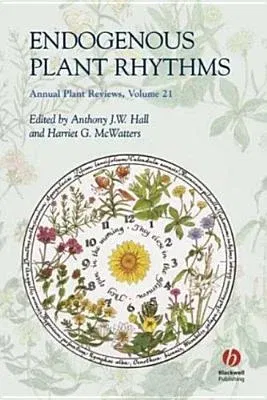Annual Plant Reviews, Endogenous Plant Rhythms (Revised)Hardcover - Revised, 1 January 2006

Qty
1
Turbo
Ships in 2 - 3 days
In Stock
Free Delivery
Cash on Delivery
15 Days
Free Returns
Secure Checkout

Part of Series
Annual Plant Reviews
Print Length
288 pages
Language
English
Publisher
Wiley-Blackwell
Date Published
1 Jan 2006
ISBN-10
1405123761
ISBN-13
9781405123761
Description
Product Details
Book Edition:
Revised
Book Format:
Hardcover
Country of Origin:
GB
Date Published:
1 January 2006
Dimensions:
23.62 x
15.75 x
2.03 cm
ISBN-10:
1405123761
ISBN-13:
9781405123761
Language:
English
Location:
Oxford, England
Pages:
288
Publisher:
Series:
Weight:
680.39 gm